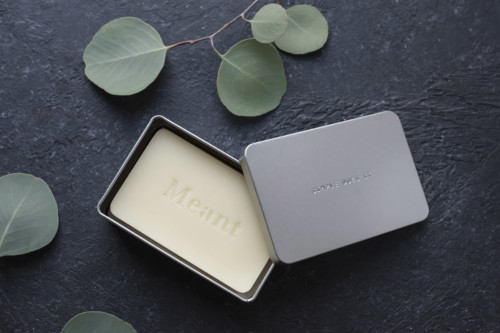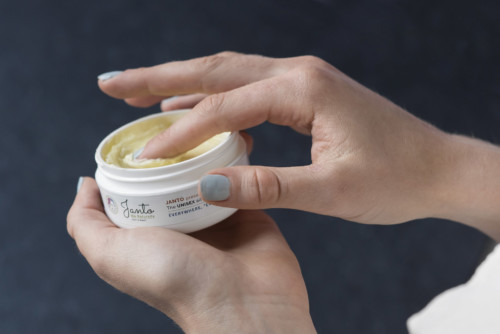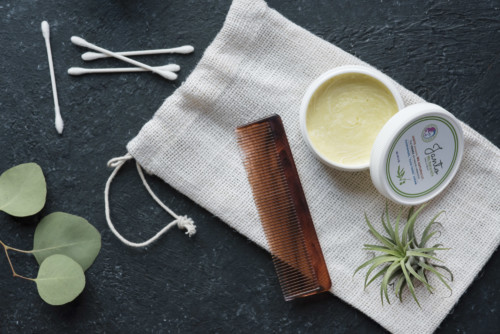
Unisex Body Products Are the Way of the Future
Unisex body products are emerging as a possible answer for environmentally conscious men and women who are concerned about conspicuous consumption. But what about those who are simply overwhelmed by the sheer number of skincare products on the market in 2017? From gender-neutral body wash to his-and-hers shampoo, companies like Meant, Janto, and Context are seeking to change the way we clean, moisturize, and primp ourselves– to the betterment of our wallets and the environment.
For decades, women have suffered from what economic theorists call the “Pink Tax”— a phenomenon whereby women pay more money for gender-specific products, even when they are designed to do the same thing as the male equivalent (women’s shampoo is more expensive than men’s shampoo, for example, and women’s deodorant and shaving creams are more expensive than men’s deodorant and shaving cream, even though they perform chemically similar functions.)
Because women will pay more for beauty products, companies have designed gender-specific products like face moisturizers and body wash to be more expensive because they know women are more likely to view the additional cost as an “investment in their health.”
According to one study by the New York City Department of Consumer Affairs, “on average, products for women or girls cost 7% more than comparable products for men and boys.”
It was amid this culture of conspicuous consumption that Lindsay Knaak-Stuart, Founder of Meant Simply, was inspired to produce a line of elegant, effective personal care products that could be used by either gender. “I am a minimalist at heart,” Knaak-Stuart notes. “I was decluttering and organizing my friends’ bedrooms as a kid, and perhaps enhanced by living in small NYC apartments, have been forced to keep fewer things– that is, unless you looked at my bathroom, which was overrun with too many products and too many choices,” she comments of the brand’s utilitarian angle and gender-neutral aesthetics.
“I wanted my bathroom, where I start each day, to reflect a sense of calm and order– something the outside world lacked. And it came down to choices. There are too many choices today, and too many things for the sake of things. Meant takes the best and fewest ingredients and makes multipurpose products to simplify your life and routine: it takes the 12 products in your shower and edits it down to five; it gives you five more minutes in the morning with products that are easy and quick to apply; and it’s meant for men and women– young skin or aging skin.”
Jeanette Boccia, the founder of Janto Cosmetics (a smaller-scale eco-friendly brand with a similarly reductionist ethos), was motivated to simplify her beauty routine, as well– especially when traveling.
A lifelong traveler passionate about healthy eating and lifestyle, Boccia also wanted to emphasize mobility in her product’s packaging. Thinking about durability and cost– “You spend $100 on a cream, then you can’t take it through the airport!”– she decided to make a cream with a single formulation that could be applied all over the body.
The resultant, “Everywhere, Even There!” cream uses organic olive oil and is not scented– Boccia avoids using fragrance as it’s a common allergen. Her cream, which has a light, whipped texture, is soothing enough to be used on ailments like sunburn and psoriasis, and can be modified with essentials oils (for those who desire a bespoke fragrance).
Scent, it turns out, is no longer as much of a gender differentiator as was once thought. Numerous publications– from Refinery 29 to Elle— have endorsed the earthy scents and functionality of various “male” skincare products. (Our own staff loves [easyazon_link identifier=”B00EW4F9A6″ locale=”US” tag=”gardcoll03-20″]Molten Brown’s Re-Charge Black Pepper Body Wash[/easyazon_link], [easyazon_link identifier=”B000OP3R74″ locale=”US” tag=”gardcoll03-20″]Herban Cowboy’s men’s deodorant[/easyazon_link], and [easyazon_link identifier=”B003U63WXS” locale=”US” tag=”gardcoll03-20″]Every Man Jack bodywash[/easyazon_link].)
The binary marketing of fragrance typically leads people to associate earthy scents with men and more floral scents with women.
A renewed female interest in earthy scents like pine, sage, and Egyptian musk have also worked to underscore this trend. Context skincare products, which are natural and focused on anti-aging, are similarly working to disrupt the binary marketing of fragrance, which typically leads people to associate earthy scents with men and more floral scents with women. While Context creates bespoke makeup products (which are more often consumed by women), the minimalist packaging and lack of marketing add-ons attract a more diverse audience.
Ultimately, while gender-direct brands like Harry’s Shave Cream have yet to tap into the women’s body care market (despite the fact that, um, women shave just as much as men), the general trend for eco-conscious consumers looking to simplify their routines seems to be moving towards gender neutrality. Unisex bodycare products are not only better for the earth but better for society– they suggest that less can be more, without sacrificing quality.
Want to read more about ethical skincare? Read about the emergence of single-note fragrances or check out our list of the best all-natural micellar waters.




































